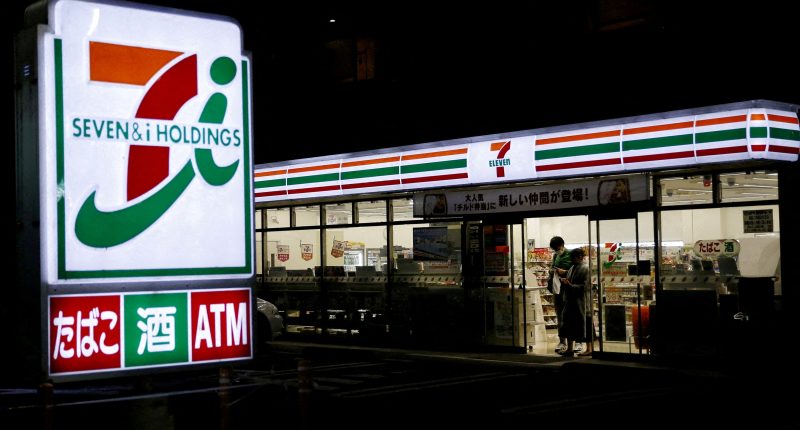Japan’s retail giant, Seven & i Holdings, is under pressure to prove it can achieve long-term growth without external assistance. As the owner of 7-Eleven, the company faces heightened scrutiny from investors following a major takeover offer and an ambitious break-up plan aimed at streamlining its operations.
Seven & i’s Strategic Plan to Stay Independent
On Thursday, Seven & i will hold an “investor day” to present its vision for the future, following an announcement of a sweeping restructuring plan. The company seeks to convince shareholders that it can unlock value on its own, without needing to accept a $47 billion takeover offer from Canadian firm Alimentation Couche-Tard.
The $47 Billion Takeover Offer from Couche-Tard
In August, Alimentation Couche-Tard, the owner of Circle-K convenience stores, made a preliminary bid to acquire Seven & i. The Canadian company has since increased its offer by 22%, bringing the total valuation to around $47 billion. If successful, this deal would mark the largest-ever overseas buyout of a Japanese company.
However, Seven & i is fighting to maintain its independence, relying on the strength of its convenience store empire and promising shareholders that it can unlock value through internal measures.
Seven & i’s Restructuring Plan
Breaking Up Non-Core Units
In response to investor pressure, Seven & i unveiled a plan to restructure its business, aiming to spin off its underperforming supermarket operations, including Ito Yokado, into a separate holding company. The plan also includes divesting from 30 non-core units.
The company has long been criticized for its reliance on these struggling segments, with many foreign investors advocating for a break-up of the business. However, early market reactions have been lukewarm, with shares barely moving since the announcement of the plan.
Investor Concerns and Criticism
Some shareholders, including U.S. fund Artisan Partners, have expressed skepticism about the restructuring plan. The fund has called the move “too little, too late,” and has urged Seven & i to engage with Couche-Tard. Other analysts, such as Lorraine Tan of Morningstar, have noted that while the plan may be a positive step, it does not significantly address key concerns.
Challenges Facing Seven & i’s Global Operations
While Seven & i’s 7-Eleven stores are highly profitable in Japan, its global operations tell a different story.
Japan vs. International Profit Margins
In Japan, 7-Eleven enjoys a 27% operating margin, largely driven by its franchised stores. However, its international margins are much lower, standing at just 3.5%. This disparity highlights the challenge the company faces in making its overseas operations as profitable as its domestic ones.
International Expansion and Cost Cutting
As part of its restructuring, Seven & i has announced the closure of 444 underperforming stores overseas. The company also aims to enhance its fresh food offerings in the U.S. market as a means of increasing profitability and staying competitive.
Conclusion: The Path Forward for Seven & i
Seven & i faces a pivotal moment in its history, as it seeks to convince investors that it can deliver sustainable growth without the need for a takeover. The company’s restructuring plan, which focuses on shedding non-core assets and improving the performance of its international convenience stores, represents its attempt to prove its independence. However, investor skepticism remains, and much of Seven & i’s success will depend on its ability to execute its strategy effectively and improve profitability across its global operations.









